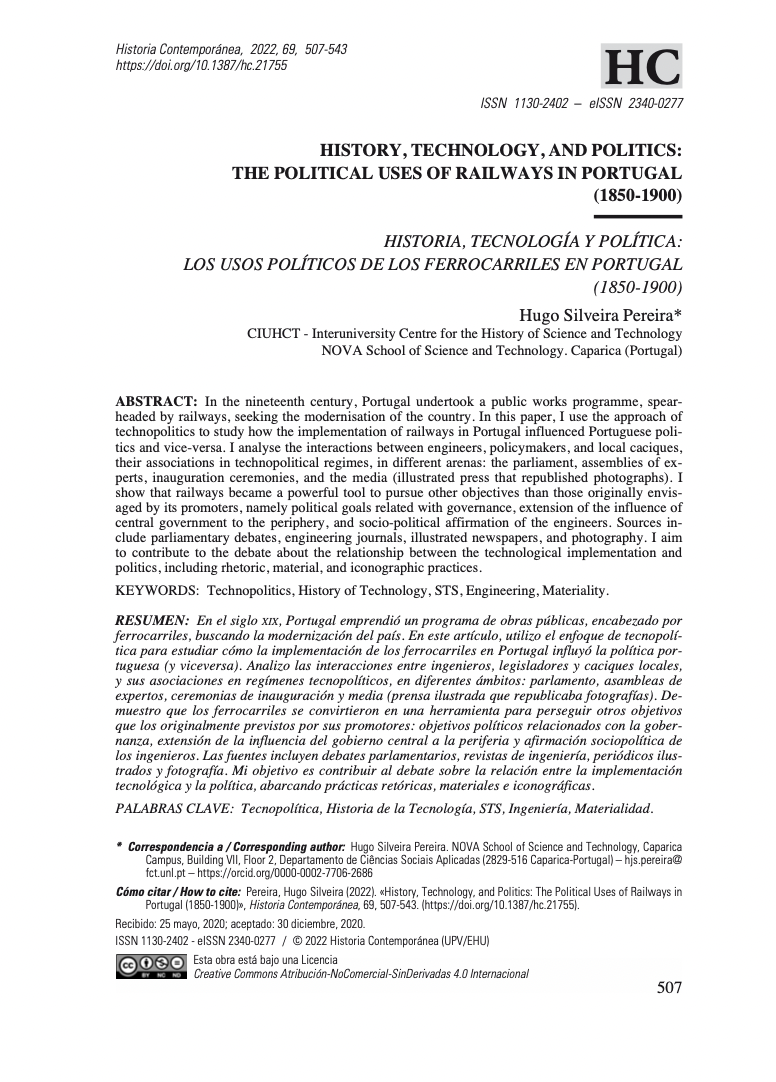History, Technology, and Politics: the political uses of railways in Portugal (1850-1900)
- Author(s)
- Publisher
- 69
- Year
- 2022
- Journal
Historia Contemporánea

Abstract
In the nineteenth century, Portugal undertook a public works programme, spear- headed by railways, seeking the modernisation of the country. In this paper, I use the approach of technopolitics to study how the implementation of railways in Portugal influenced Portuguese poli- tics and vice-versa. I analyse the interactions between engineers, policymakers, and local caciques, their associations in technopolitical regimes, in different arenas: the parliament, assemblies of ex- perts, inauguration ceremonies, and the media (illustrated press that republished photographs). I show that railways became a powerful tool to pursue other objectives than those originally envis- aged by its promoters, namely political goals related with governance, extension of the influence of central government to the periphery, and socio-political affirmation of the engineers. Sources in- clude parliamentary debates, engineering journals, illustrated newspapers, and photography. I aim to contribute to the debate about the relationship between the technological implementation and politics, including rhetoric, material, and iconographic practices.